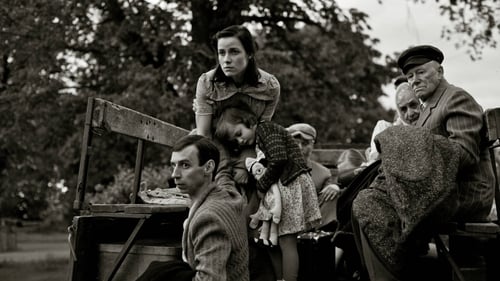
Producer
It's the summer of 1990. The Soviet Union is teetering on the verge of collapse, while the little Baltic nations struggle to take back their lost independence. The Soviet Union's basketball championship is set to begin on the backdrop of a deeply divided society. The Estonian team Kalev faces a momentous decision. With Estonian independence seemingly within reach, a rising tide of public opinion opposes the Estonian national team's participation in the USSR's championship. That would contradict the people's aspirations for liberation. As professional athletes, the team makes the unpopular choice. The championship games start.

Producer
The 1960s and 70s brought a new wave of talented young poets and writers, painters and theater innovators to the gray and established culture of Soviet Estonia. Evald Hermaküla began his theatrical career as a young, angry genius working at the Vanemuine Theater, where he staged several legendary productions. The direction of Hermaküla was clear - away from the text and the rationality towards the subconscious. The film mixes theatrical and personal memories of the author with documentary archival material and Hermaküla's contemporary thoughts on theater, life and death.

Producer
Located in the heart of Tallinn, the capital of Estonia, the Hippodrome used to be the centre of entertainment for all its neighbouring countries. For nearly 100 years, it has lured visitors with bets and races. All that remains today of this majestic racecourse is a lonely horse stable. Now it is more of a social club than a prestigious racetrack. Animal lovers and sports fans still meet here despite the poor conditions. Bizarre parties and engagement photo sessions are held at the Hippodrome, and this is where the best Swedish racehorses are still trained. This hypnotic black and white film is an ode to a disappearing era and a unique subculture in a place soon to be demolished to make way for the triumphal march of business-oriented real estate development.

Producer
A documentary film that takes the viewer to the great stages of the sport of cycling. Estonians Tanel Kangert and Rein Taaramäe are the same age and both from the small village of Vändra. They are under the microscope as they both cycle in the top-level Astana Pro Team.

Producer
Freddy Grenzmann is Estonia’s last rockstar and the singer of a punk-rock band called Psychoterror. And a poet. The phenomenon of a rockstar stands outside of normality – is bigger than life. Recognizingly what we can say about Freddy, is that he is not normal – not on stage, nor in life. Freddy’s creation and life are equivalent – he puts everything out there. What makes Freddy interesting is not the social or textual play, but the ammount that he puts in. Possibility of total loss of self-control and the depth of a predictable human or metaphysical agony. This is the story of the last real rockstar and poet, his work and of a punkbands anatomy.

Producer
June 14, 1941, 3 a.m. Over 40000 people from Estonia, Latvia and Lithuania are deported by Soviets to Siberia. Among them is a philosophy student Erna, a happily married mother of a little girl. Separated from her husband Erna and her daughter are dispatched together with other women and children to remote Siberian territories. Despite hunger, fear and brutal humiliation Erna never in next fifteen years loses her sense of freedom and hope of returning to homeland. The story is inspired by real events.

Producer





